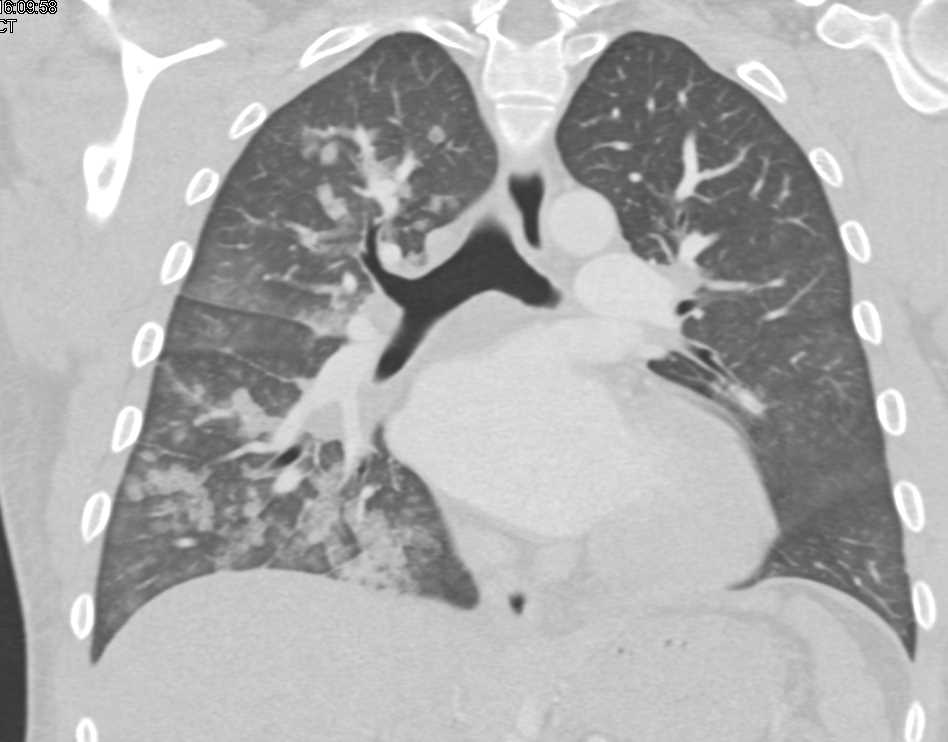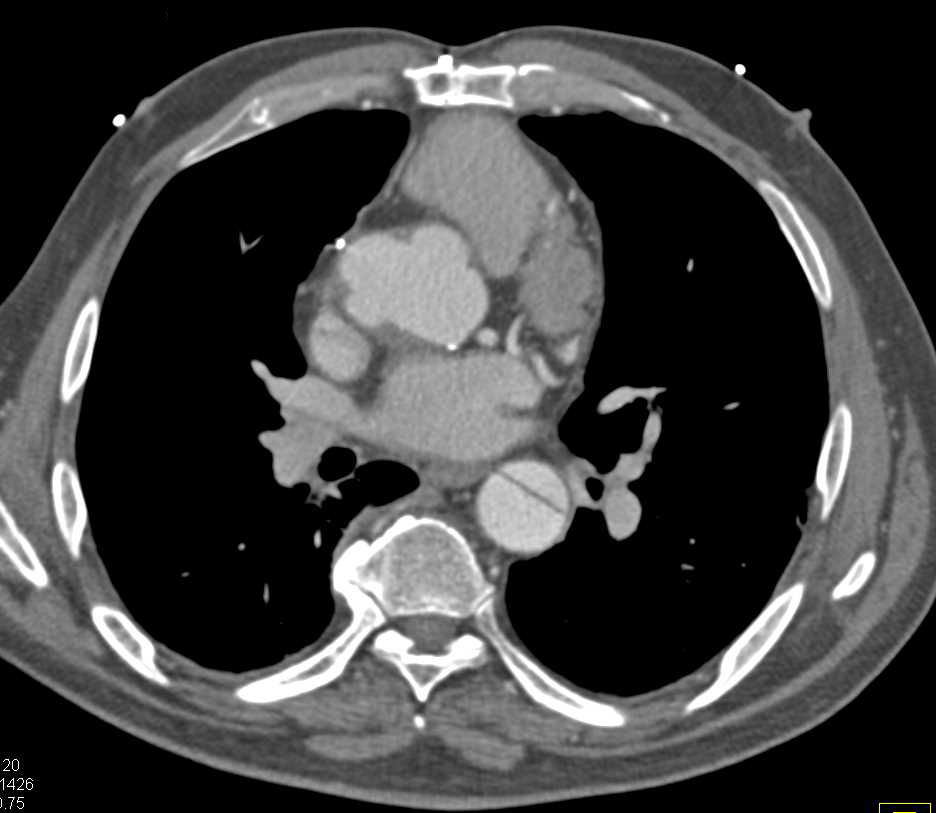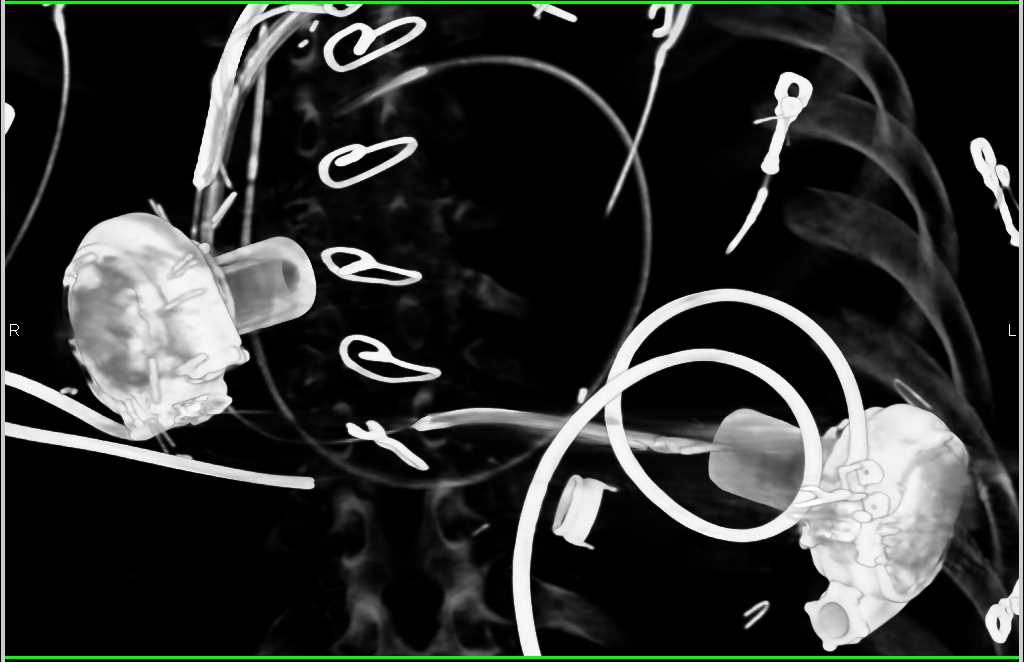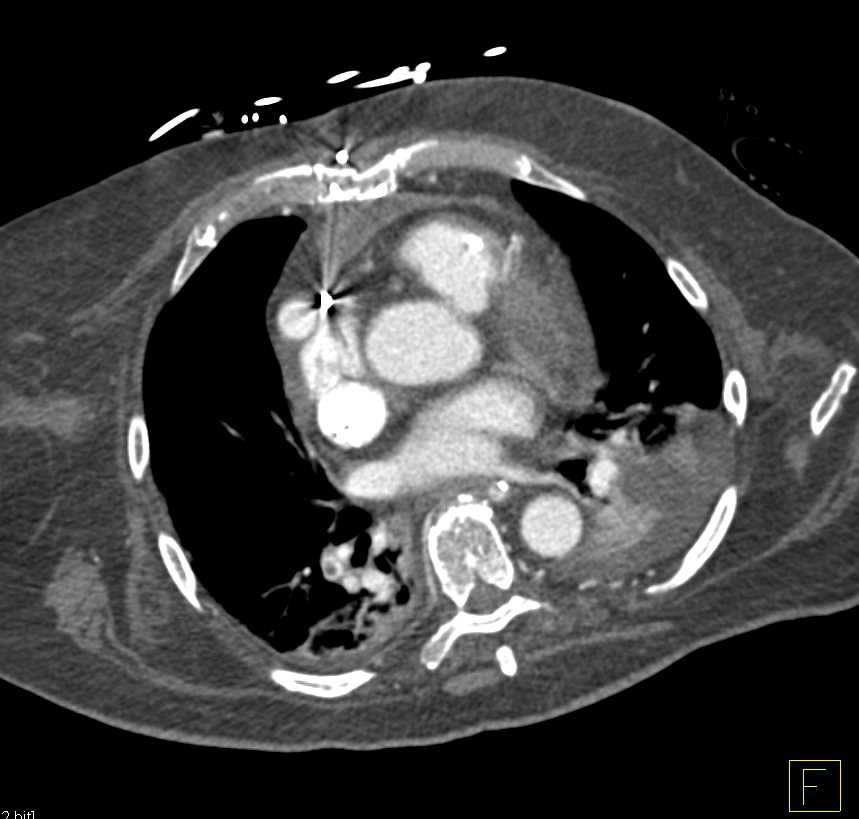
- 3
- 0
- ,
- 0
- 5
- 2
To Quiz Yourself: Select OFF by clicking the button to hide the diagnosis & additional resources under the case.
Quick Browser: Select ON by clicking the button to hide the additional resources for faster case review.
CASE NUMBER
4,584
Diagnosis
Patchy Infiltrates That Look Like COVID 19
Note
Patchy infiltrates that look like COVID. Well, I think that these days, any type of ground glass or crazy paving type pattern, you have to think about COVID pneumonia, and for a while it was COVID every single case. Now with COVID being less frequent, particularly the new variants, in terms of infiltrates in the lung we need to think of other things.
Unilateral is a bit atypical in COVID. Community acquired infections, viral pneumonitis are all possibilities. We see in this case multiple patchy infiltrates in the right lung. This was community acquired infection. There was also some infiltrate in the left base.
But again, in terms of COVID infiltrates, this could indeed be COVID though they typically have more of a crazy paving pattern to them. I think itís going to be hard for us to go back to saying other etiologies for infection. These days you always lead to not rule out COVID or at least until the patientís COVID tested. So just a very important case.
I think coronal views at times give you a nice look at the pattern of the lung infiltrates as well as the distribution.
Unilateral is a bit atypical in COVID. Community acquired infections, viral pneumonitis are all possibilities. We see in this case multiple patchy infiltrates in the right lung. This was community acquired infection. There was also some infiltrate in the left base.
But again, in terms of COVID infiltrates, this could indeed be COVID though they typically have more of a crazy paving pattern to them. I think itís going to be hard for us to go back to saying other etiologies for infection. These days you always lead to not rule out COVID or at least until the patientís COVID tested. So just a very important case.
I think coronal views at times give you a nice look at the pattern of the lung infiltrates as well as the distribution.
THIS IS CASE
4,584
OF
4,997



















